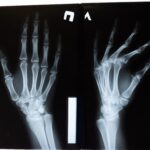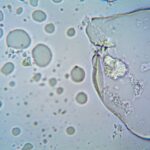Nutritional Deficiencies: How to Tackle them?

Vitamins and minerals, also known as micronutrients, are vital for healthy development, disease prevention, well-being and prevent any nutritional deficiencies.
When taking micronutrients, it is important that you only take them in the recommended amount. That’s because a lack of vitamins and minerals has proven to be detrimental to health.
Lack of vitamins can cause serious congenital disabilities, a reduction in cognitive capabilities and productivity, and even fatal cases of infant death and childhood blindness.
All vitamins, with the exception of vitamin D, must be consumed in your diet because they are not made by your body, and the prescribed amount is 2-3 cups of vegetables a day. Consuming dietary supplements or fruit and vegetable supplements also help.
Research suggests that 90% of Americans do not meet this goal resulting in nutritional deficiencies, and it also shows that inadequate fruit and vegetable consumption is one of the primary reasons for death due to heart diseases and strokes each year.
Typical American Diet
As the name suggests, the typical American diet consists of processed foods, meat, and, generally, foods high in saturated fats. Such a diet leaves much to be desired in terms of nutrition. Combined with poor lifestyle choices, a large number of Americans are deficient in nutrients. Because of that, some doctors recommend dietary and fish oil supplements to make up for the deficiency. Some people also take vitamin pills and fish oil supplements, but you should consult your dietician or a nutritionist before you make a list.
Common Nutritional Deficiencies
Iron
Iron is critical for your motor skills and cognitive development. Additionally, red blood cells also require iron in order to carry oxygen throughout your body.
Iron deficiency is one of the leading causes of a low blood count, which can lead to anemia as well, and low concentration of hemoglobin as well.
In addition to that, low iron levels are detrimental to young children and females of childbearing age.
Another cause of iron deficiency and anemia can be pregnancy. During pregnancy, the volume of blood in your body increases, and because of this, the need for iron also increases. Because of this, they may become more susceptible to iron deficiency and anemia.
There are some indicators that may be your body telling you that you are low on iron, such as fatigue, dizziness, headache, sensitivity to the cold, unusual cravings, and weakness as well.
Some food sources which are recommended to be rich in iron include:
- Meat and seafood, including beef and turkey
- Plant-based food includes beans, lentils, and grains.
- Food rich in vitamin C
Vitamin D
This vitamin builds strong bones and strengthens the immune system. Additionally, it is required for proper muscle and nerve function, and too little of vitamin D may result in soft bones in children and fragile bones in adults as well. Not to mention, you start to grow more susceptible to vitamin D deficiency as you get older.
One of the main sources of vitamin D is sunlight, which our skin converts to vitamin D. However, too much sunlight can be the cause of skin cancer as well. Additionally, food sources rich in iron also include fish liver oils, certain mushrooms, and the flesh of fatty fish as well.
One of the leading symptoms of deficiency can include fatigue, bone pain, mood changes, muscle aches, and weakness as well. The recommended amount to prevent this is 400 units for children less than a year old, 600 IU for people from 1 to 70, and 800 IU for people over 70 years.
Calcium
This is responsible for keeping your bones strong, and it also helps in the regulation of proper heart rate. If taken in conjunction with potassium and magnesium, it can also prevent high blood pressure.
As estrogen levels drop, so does women’s ability to absorb calcium. People with odd eating habits or an absence of dairy in their diet have the highest risk of developing a calcium deficiency.
Some food sources rich in calcium may include dairy, tofu, salmon, and dark green vegetables, including kale. As far as the amount goes, most people need 1000mg each day, and people above the age of 51 need 1200mg.
Vitamin B12 or Cyanocobalamine
This vitamin to eliminate nutritional deficiencies is essential for red blood cell formation and nerve cell maintenance. They get less effective as we age, and vegetarians are at the most risk of developing a deficiency because vegetables do not contain this vitamin.
Symptoms of Vitamin B12 deficiency may include fatigue, numbness in hands and legs, and general imbalance as well. Some foods to consume in order to avoid this include poultry and milk as well.
Magnesium
This is a key mineral that is essential for digestion, bone health, and sleep as well. A recent study showed that nearly 70% of the U.S population under 71 consume less than the required amount of magnesium, which can cause deficiency, and other health issues, including heart disease as well.
Other causes of magnesium deficiency may be drug misuse or some diseases as well. The leading symptoms for this include abnormal heartbeat rhythm, cramps, and fatigue, to name a few.
Supplements: Fighting Nutritional Deficiencies with a pill?
The Dietary Guidelines for Americans state that your diet should be your primary way of meeting your nutritional needs. However, supplements and especially dietary supplements, fruit and vegetable supplements can be useful for some people whose intake needs are not met on a daily basis.
Supplements vs. whole foods
Supplements cannot replicate all the nutritional needs and benefits of foods such as fruits and vegetables, which is why it is not considered a replacement for food.
There are 3 important benefits whole foods have over supplements:
- Greater Nutrition
- Presence of essential fibres.
- Presence of protective substances
Who needs supplements?
Normal, healthy adults do not require food supplements to combat nutritional deficiencies because they get them from their diet and by consuming a variety of foods, including fruits and vegetables.
Supplements may be the thing for you if you:
- Are you pregnant or trying to get pregnant
- Are 50 years or older
- Have a shallow appetite or nutritional problems
- Follow an unbalanced diet that ignores certain food groups
- Have a medical condition that affects your nutrition digestion, including chronic diarrhea.
- Have you had any operations on your digestive tract?
Dr. Nandi’s New Line of Supplements:
|
|
|
Nutrition: Summarized
A vitamin pill should never be considered a shortcut for nutrition because all of the nutrients are available in the different types of foods and most experts agree on the fact that the best way to get nutrients is to consume different types of foods.
The best way to determine whether or not you need a vitamin or a food supplement is to get a blood test or consult with a proper doctor or nutritionist. In the case that you are taking them, be sure to gain knowledge about proper dosage and side effects.
- Category: Article




